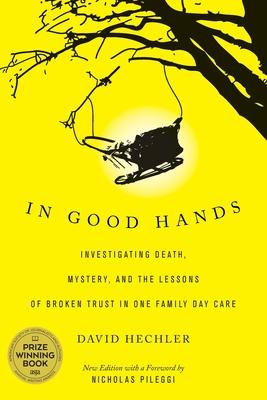When In Good Hands won The American Society of Journalists and Authors book award for general nonfiction, the judges called it "riveting reading!"
It's a medical and psychological mystery story with important lessons for parents. Here's what Nicholas Pileggi, a master of true crime (including the books and screenplays he wrote for the films Goodfellas and Casino) said about it:
"In Good Hands is the true story of two four-month-old infants who died in a South Carolina home day care within nine months. Was it a coincidence, or were these crimes? Pathologists said the cause was sudden infant death syndrome, but the police suspected foul play. As investigators struggled to answer the many questions the deaths provoked, none was larger than this: If these were murders, why would the church-going mother of three who ran the day care, and seemed to love children, kill them? In his superb book, author David Hechler delivers not only answers, but information that could make day care safer for all children."
It's not a simple story. Intelligent and dedicated professionals disagreed about what happened. Skilled pathologists acknowledged an autopsy can't always distinguish sudden infant death syndrome from murder. Parents wanted to believe the best about their day care providers, defending them even when there were reasons to question the choice.
In this case, there were actually two adults running the day care where children died: Josh and Gail Cutro. Some parents felt that Josh, who had been in trouble with the law, was a more likely suspect than his wife, who had not. He was the one with the volatile temper.
But the police investigation also turned up startling evidence that raised questions about Gail Cutro's psychological state. She appeared to be a shy and deferential mother who loved babies. But psychologists and the prosecutor found a lot going on beneath the surface.
The big questions were these: Would the jury find this evidence persuasive enough to convict? And what can parents learn from this story that will help them protect their own children in day care?
